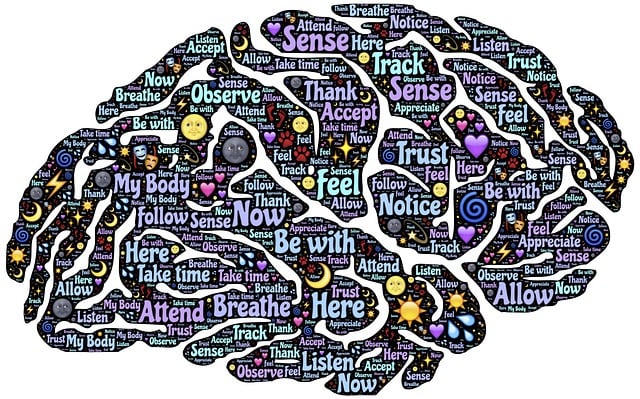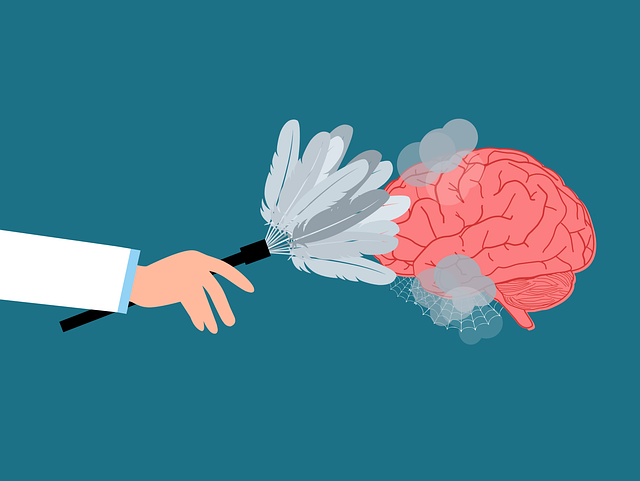Crisis Intervention Teams (CITs), powered by Superior Trauma Therapy (STT) training, are key to addressing acute mental health crises with immediate de-escalation and counseling. These teams, composed of professionals from diverse backgrounds, connect individuals with long-term care while fostering Emotional Intelligence and Inner Strength Development. STT training for CITs emphasizes anxiety relief techniques like breathing exercises and mindfulness, effective communication strategies, self-esteem improvement through role-playing, and cultural competency. Practical workshops, combined with theoretical knowledge, equip team members with essential tools to handle diverse crises effectively. Evaluating training effectiveness through role-plays and simulations ensures trainees are ready for real-life scenarios, with evidence-based practices like Compassion Cultivation enhancing the holistic approach.
Crisis intervention team (CIT) training programs are vital in equipping mental health professionals with the tools to handle high-stress situations effectively. This article delves into the essential components of superior trauma therapy as taught in these workshops. We explore the role and importance of CITs, practical skills, real-world scenario preparation, and methods for evaluating and enhancing the effectiveness of crisis intervention training. Understanding these key aspects ensures better equipped professionals ready to provide timely support during crises.
- Understanding Crisis Intervention Teams: Their Role and Importance
- Key Components of Superior Trauma Therapy in Training Programs
- Practical Skills and Techniques Taught in These Workshops
- Preparing Mental Health Professionals for Real-World Scenarios
- Evaluating and Enhancing the Effectiveness of Crisis Intervention Training
Understanding Crisis Intervention Teams: Their Role and Importance

Crisis Intervention Teams (CITs) play a vital role in addressing acute mental health crises, offering immediate support to individuals experiencing severe emotional distress or suicidal ideation. These specialized teams consist of trained professionals from various disciplines, including psychology, psychiatry, and social work. Their primary objective is to de-escalate situations, provide crisis counseling, and connect individuals with appropriate long-term care.
The importance of CITs cannot be overstated, especially in light of the growing emphasis on Superior Trauma Therapy and Mental Health Policy Analysis and Advocacy. By fostering Emotional Intelligence and Inner Strength Development, these teams not only offer immediate relief but also empower individuals to navigate future challenges. This holistic approach ensures that crisis intervention is more than just a temporary fix; it’s a stepping stone towards long-term mental well-being.
Key Components of Superior Trauma Therapy in Training Programs

Superior Trauma Therapy training programs for crisis intervention teams should incorporate several key components to ensure their effectiveness. First and foremost, these programs must emphasize Anxiety Relief techniques. Trainees need to learn and practice methods that help individuals manage intense anxiety during traumatic events, promoting calmness and facilitating better decision-making. This can include breathing exercises, progressive muscle relaxation, and mindfulness practices tailored for crisis scenarios.
Additionally, fostering Communication Strategies is vital. Effective crisis intervention hinges on clear, empathetic, and non-judgmental communication. Training should equip team members with active listening skills, open-ended questioning techniques, and strategies to validate the affected individual’s feelings while maintaining professional boundaries. Moreover, focusing on Self-Esteem Improvement for both the interveners and those in crisis can enhance resilience and support better outcomes. Building self-efficacy and confidence through role-playing exercises and debriefings can strengthen the team’s overall performance during high-stress situations.
Practical Skills and Techniques Taught in These Workshops

In crisis intervention team training programs, participants gain a wide array of practical skills and techniques designed to effectively manage and de-escalate critical situations. These workshops emphasize hands-on learning, equipping attendees with tools such as active listening, calming techniques, and superior trauma therapy methods. Through interactive exercises, healthcare provider cultural competency training is also integrated, fostering better understanding and empathetic responses towards diverse populations.
Self-awareness exercises play a central role, teaching individuals to recognize their emotional states and those of others, thereby enhancing their ability to provide anxiety relief in stressful environments. By combining these practical skills with theoretical knowledge, crisis intervention team members become more equipped to handle diverse crises, ensuring they can offer the best support possible in challenging scenarios.
Preparing Mental Health Professionals for Real-World Scenarios

Mental health professionals play a pivotal role in crisis intervention, requiring them to be equipped with skills that translate effectively into real-world scenarios. Superior Trauma Therapy (STT) programs are designed to prepare these professionals for the complexities and uncertainties of crisis situations. Through immersive training, STT equips practitioners with advanced coping skills development and crisis intervention guidance, enabling them to navigate challenging environments with confidence.
These programs focus on enhancing stress management techniques, ensuring professionals can maintain their composure under pressure. By practicing and refining their abilities in a controlled setting, they gain the expertise needed to offer immediate and effective support to individuals in distress. The ultimate goal is to foster an environment where mental health professionals can confidently apply their knowledge, making a significant impact during critical moments.
Evaluating and Enhancing the Effectiveness of Crisis Intervention Training

Evaluating the effectiveness of crisis intervention training is paramount to ensuring that participants are equipped with the necessary skills to handle sensitive situations. A comprehensive assessment should consider both the knowledge gained and practical application during role-plays or simulations. By observing how trainees respond in realistic crisis scenarios, instructors can gauge their proficiency in de-escalation techniques, active listening, and communication strategies. These elements are pivotal for effective crisis intervention, especially when dealing with individuals experiencing severe emotional distress or trauma.
Enhancing the training program involves integrating evidence-based practices such as Compassion Cultivation, which fosters empathetic responses and reduces stress. Incorporating these strategies alongside traditional Superior Trauma Therapy ensures a holistic approach that addresses both the technical aspects of crisis management and the emotional well-being of those involved in interventions. Additionally, implementing a Community Outreach Program can broaden the reach of training by equipping participants to respond effectively in diverse community settings.
Crisis intervention team (CIT) training programs play a pivotal role in equipping mental health professionals with the tools needed for effective trauma care. By focusing on key components of superior trauma therapy, these workshops foster practical skills and techniques essential for real-world applications. Through rigorous evaluation and continuous enhancement, CIT training ensures professionals are prepared to navigate diverse crisis scenarios, ultimately improving patient outcomes and community resilience. Implementing comprehensive programs that address all aspects of crisis intervention is crucial in promoting a culture of care and effectiveness within mental health services.














